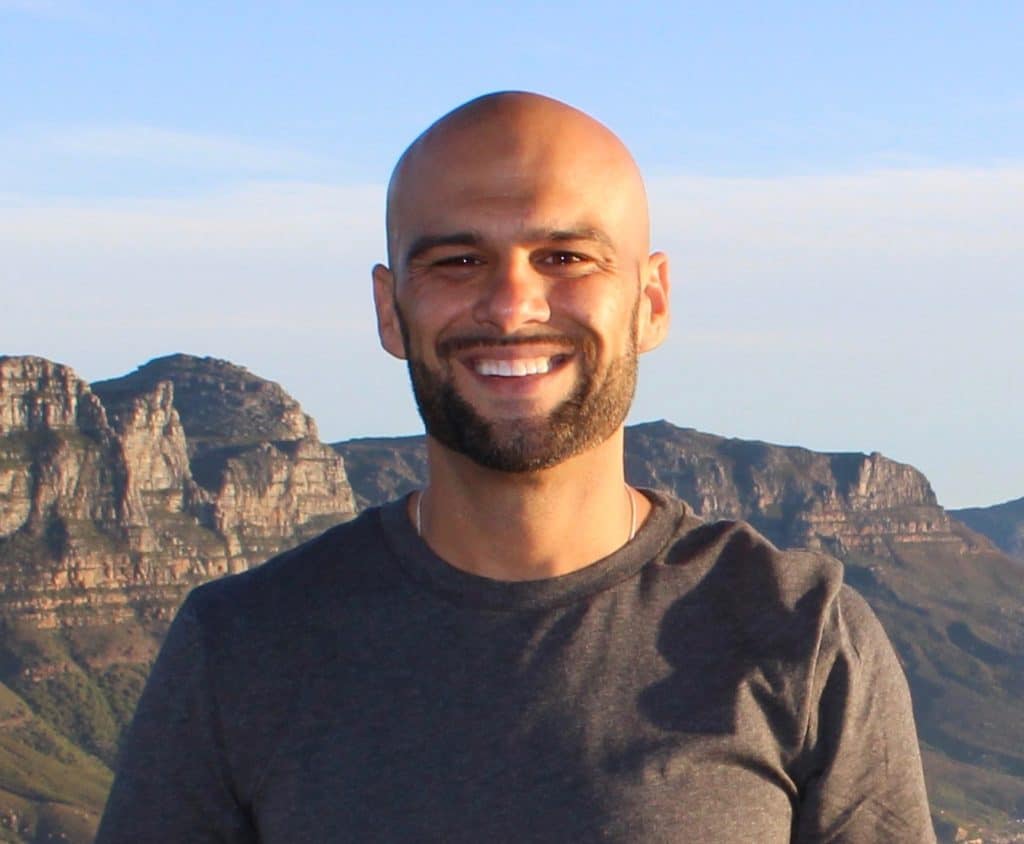Thanks to Jeff for sharing his story.
My mom says that from the time I was born I’ve always wanted a ball in my hand. I believe her. There has always been something about it that clears my mind and gives me a sense of empowerment. When I was growing up in New Orleans, Louisiana, USA, I only wanted to be one thing: a professional athlete. Never in my childhood life did I ever think about having a “real job”. Everything I did revolved around sports and my identity as an athlete.
As I got older, I became physically mature enough to play football, which was the sport I loved the most. When I made the high school varsity roster at just 13 years old, it was one of the greatest days of my life. My high school football career began with a bang. I used my athletic skills and mental toughness to play the game at a high level. I was one of the best players on the team and my coaches loved me because I had the skills to play different positions. I played for three years with only a handful of minor injuries that didn’t effect my practice or playing time in any way.
In 2000, I grabbed an opponent by the shoulder pad and tried to pull him to the ground. Before I could finish the movement, my shoulder popped out and back into place. It was quite painful, but I went on playing for 10 more weeks. Slowly, my shoulder got worse and became very unstable. Any overhead movements produced a tremendous amount of discomfort and uneasiness because I knew that even the slightest movement might cause my shoulder to slip out.
Eventually, I had to give in and see an Orthopedic physician. An MRI was ordered and I was diagnosed with a torn labrum. I needed arthroscopic surgery to repair my damaged shoulder. I was devastated. I had never been injured before and now I had an injury that was serious enough to require surgery and sideline me from football. It was a lot for a 16-year-old to deal with.
The surgical process wasn’t fun. Severe nausea and vomiting from the anesthesia kept me sick and in the hospital overnight. Additionally, the pain in my shoulder was excruciating. I couldn’t move any part of my upper arm without a tremendous amount of pain. I thought to myself, “how in the world am I ever going to play again?”.
After a few weeks of laying around the house and recovering, I was able to start going to physical therapy. It was very tough at first, but I began to see results after only a few short weeks. There was hope. I made up my mind that persistence and resilience would help me recover. I began to be optimistic.
My physician deemed the total recovery time to be around 12 weeks, which meant I had to sit out of spring practice and summer conditioning sessions. I didn’t take this well at all. Watching my friends and teammates fly around the practice field caused me to fall into a state of deep depression. It was like everything I ever had was taken from me and there was little I could do about it. I began to be jealous, frustrated, and angry. I took my ill feelings out on any and everyone I was around. My relationships and school work began to suffer. I actually got into a tremendous verbal confrontation with a large group of students in the cafeteria and was disciplined by the principal. My life wasn’t going well and my wellbeing was being affected.
After having deep conversations with my parents, coaches, school officials, and physician we came to an agreement that my recovery process could be sped up. I was very happy about this and felt a tremendous amount of support from everyone around me. I focused hard on my therapy and began to participate in team conditioning activities. I was able to use my shoulder enough to run with my teammates. I slowly began to lift weights again and started to feel a little better mentally. At the 12-week mark, my physician cleared me for full participation in all football activities. I finally had my identity back.
Unfortunately, I suffered a few minor setbacks after being fully cleared. Most of them were just aches and pains associated with playing football with a surgically-operated-on shoulder. The biggest hardship was a mental one. Anytime anything with my shoulder went wrong, I became very anxious and thought the worst. Negative thinking would consume my mind and was something that I would have to work on. Eventually, I trained myself to think like a normal athlete again and performed at a high level without being paranoid. When my athletic career ended, I thought about it for a couple years, but it slowly faded with time and probably went away completely in two to three years.
I’m 32 years old right now and as I’m typing this it all seems so trivial, but at the time it was really important. I’m not a professional athlete, nor do I want to be one. I have numerous other hobbies besides football and identify with myself on many different levels. I think that in a way, my injury opened my mind up to a new world and forced me to think of life outside of athletics. I’m a much kinder and compassionate person. I’m also less aggressively competitive. In the long run, I’m glad it happened. It inspired me to pursue a career in Orthopedics. I’m currently no longer in the field, but I’m glad I was and was able to give back.

Jeff Oescher is originally from the USA but now travels the world. He is currently living in South Africa pursuing outdoor activities (mainly hiking), exercise, cooking, watching sports, and writing. Find out more about Jeff on his website.
If you’d like to share your story, get in touch with us at Recover from Injury.

